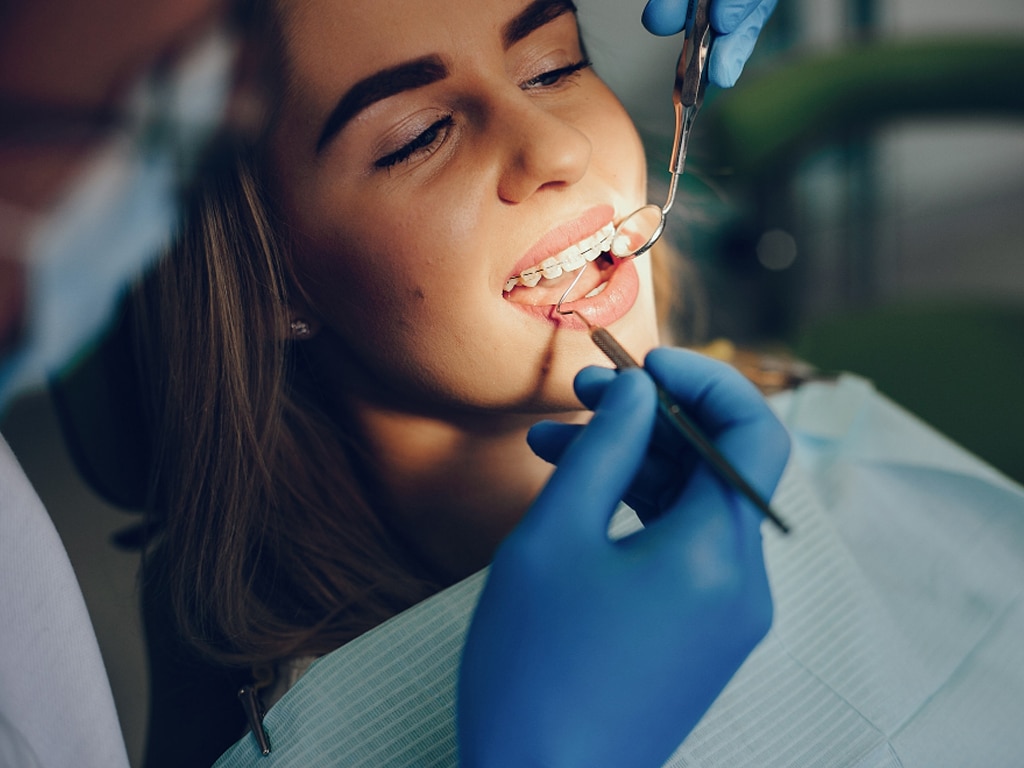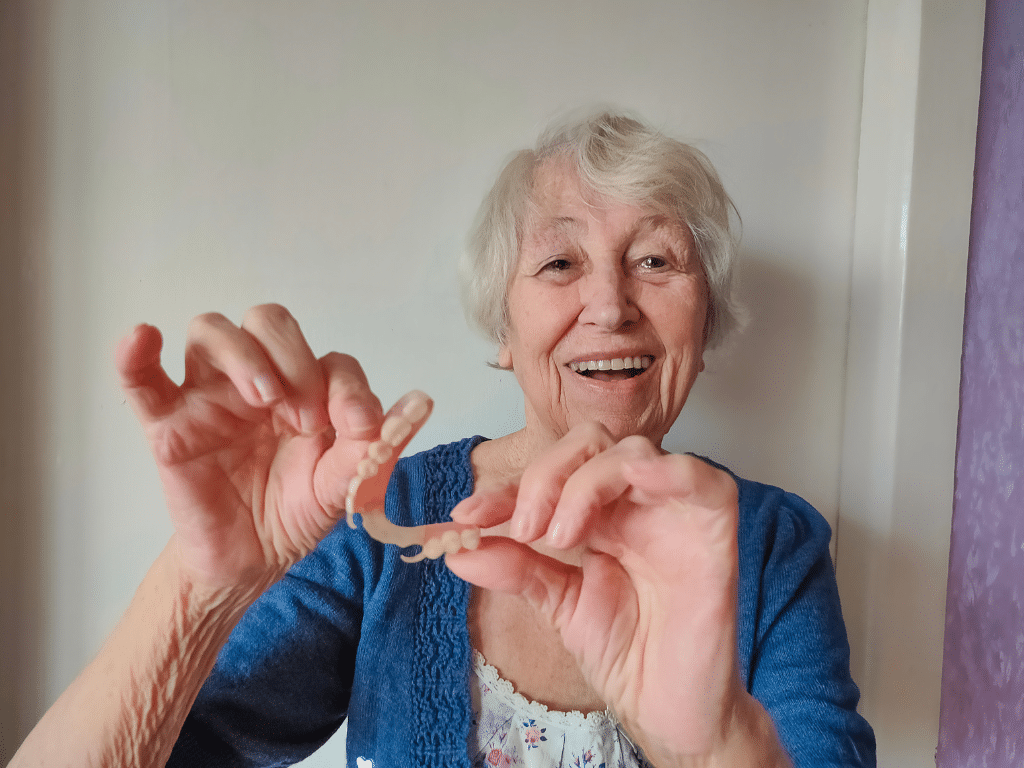The best dental emergency is the one that never happens. While our team at Nebo Dental Centre is always here for Hamilton residents in times of crisis, our true passion lies in proactive partnership. We believe that true dental wellness is not about reacting to pain and problems, but about collaboratively building a foundation of health and strength that prevents those crises from ever occurring. This guide is dedicated to that philosophy—empowering you with the knowledge and strategies to move from reactive treatment to proactive care, ensuring your smile remains strong, healthy, and resilient for life.
Introduction
The jarring shock of a cracked tooth, the throbbing, relentless pain of an abscess, the panic of a knocked-out tooth—these are the stressful realities of a dental emergency. Anyone in Hamilton who has experienced one knows the immediate disruption it causes to life. In those moments, you need fast, effective, and compassionate care. But what if you could significantly reduce your chances of ever needing that last-minute, urgent appointment? What if you could build a smile so strong and healthy that it could withstand the daily pressures it faces?
That is the core of preventative dentistry. It’s a partnership between you and your dental team, focused on identifying risks, strengthening natural defenses, and addressing small issues before they escalate into painful, costly emergencies. Building a stronger smile is an active process, a series of conscious choices and consistent habits that pay dividends in lifelong health. This article will serve as your comprehensive roadmap, detailing the ten key pillars of preventative care that we champion here at Nebo Dental Centre to help you protect your most valuable asset: your smile.
- The Cornerstone: Proactive Professional Cleanings & Check-ups
The single most effective strategy in preventing dental emergencies is committing to regular professional care. These appointments are far more than just a simple “clean and polish.” They are comprehensive evaluations where we can detect the earliest signs of trouble, long before you would ever notice them yourself. By removing stubborn plaque and tartar that your brush can’t reach and thoroughly examining every aspect of your oral health, we can stop potential emergencies in their tracks.
- Schedule Consistently: For most patients, a check-up and cleaning every six months is ideal for maintaining oral health and catching issues early.
- Professional Scaling: Our hygienists use specialized tools to remove hardened plaque (tartar or calculus) from above and below the gumline, preventing gum disease, which can lead to abscesses.
- Thorough Polishing: This step removes surface stains and fine plaque, making it more difficult for new plaque to accumulate on your teeth.
- In-depth Oral Cancer Screening: Every check-up includes a visual and tactile screening for any signs of oral cancer, an essential and life-saving preventative measure.
- Diagnostic Digital X-Rays: Low-radiation digital X-rays allow us to see what’s invisible to the naked eye, such as decay between teeth, bone loss, cysts, or impacted teeth.
- Gum Health Evaluation: We measure the depth of the pockets between your teeth and gums to assess for any signs of gingivitis or periodontitis, the leading causes of tooth loss.
- Examination of Existing Restorations: We check your fillings, crowns, and bridges for any signs of wear, leakage, or cracks that could lead to failure and a subsequent emergency.
- Personalized Oral Hygiene Instruction: We provide tailored advice on your brushing and flossing techniques to maximize the effectiveness of your at-home routine.
- Open Dialogue: These appointments are your dedicated time to ask questions and discuss any concerns you may have about your oral health with our Hamilton dental team.
- Mastering At-Home Care: Your Daily Defence System
The professional care you receive at our Hamilton clinic is only half the battle. Your daily oral hygiene routine is your first line of defence against the bacteria that cause decay and gum disease. A quick, haphazard brush simply isn’t enough to protect your teeth. Mastering the correct techniques and using the right tools will dramatically decrease your risk of developing the painful cavities and infections that lead to emergencies.
- Brush for Two Full Minutes, Twice a Day: Use a timer to ensure you are brushing long enough to effectively clean all tooth surfaces.
- Use a Soft-Bristled Brush: Hard bristles can damage your enamel and gums. A soft brush is highly effective without being abrasive.
- Perfect Your Technique: Hold your brush at a 45-degree angle to the gums and use gentle, circular motions. Don’t scrub aggressively.
- Consider an Electric Toothbrush: Many models have built-in timers and pressure sensors to ensure you are brushing correctly and not too hard, which can improve overall cleaning.
- Floss Correctly Every Single Day: Flossing isn’t optional. Curve the floss into a “C” shape against each tooth and gently guide it below the gumline to remove plaque where your brush can’t reach.
- Use an Antimicrobial Mouthwash: A therapeutic mouthwash can help reduce bacteria, control plaque, and fight gingivitis. Ask us for a recommendation suited to your needs.
- Don’t Forget Your Tongue: Gently brush or scrape your tongue to remove bacteria that contribute to bad breath and plaque formation.
- Replace Your Toothbrush Regularly: Change your toothbrush or brush head every three to four months, or sooner if the bristles become frayed.
- Fueling Your Teeth: The Crucial Role of a Tooth-Friendly Diet
What you eat and drink has a direct and significant impact on the health of your teeth and gums. Sugary and acidic foods fuel the bacteria that produce tooth-destroying acids, weakening your enamel and leading to cavities. A diet rich in nutrients, on the other hand, can strengthen your teeth from the inside out and support healthy gum tissue.
- Limit Sugar and Starches: Avoid constant snacking on sugary foods, candies, sodas, and starchy foods like chips that cling to teeth.
- Beware of Hidden Sugars: Read labels on sauces, juices, and processed foods, which often contain surprisingly high amounts of sugar.
- Reduce Acidic Drinks: Carbonated beverages (even diet ones), sports drinks, and citrus juices can erode your tooth enamel. Drink them in moderation and rinse with water afterward.
- Increase Calcium Intake: Foods like milk, cheese, yogurt, and leafy greens provide calcium, which is essential for strong bones and teeth.
- Eat Crunchy Fruits and Vegetables: Apples, carrots, and celery are like natural toothbrushes; their high water and fibre content help clean your teeth and stimulate saliva flow.
- Incorporate Phosphorus-Rich Foods: Foods like eggs, fish, lean meat, and nuts contain phosphorus, a mineral critical for protecting and rebuilding tooth enamel.
- Drink Plenty of Fluoridated Water: Tap water in Hamilton is fluoridated and is the best beverage for your teeth, helping to wash away food particles and strengthen enamel.
- Protective Gear: The Power of Custom Mouthguards
Many dental emergencies are the result of physical trauma. Whether it’s from an organized sport, a recreational activity, or the unconscious habit of grinding your teeth at night, your teeth are vulnerable to cracks, chips, and fractures. A custom-fitted mouthguard from your dentist is a simple yet incredibly effective piece of protective equipment.
- For the Athletes: If you or your child plays contact sports like hockey, football, lacrosse, or even non-contact sports like basketball or soccer, a custom mouthguard is essential protection against knocked-out or broken teeth.
- Superior Fit and Comfort: Unlike boil-and-bite guards from a store, a custom-made mouthguard fits perfectly, making it more comfortable, less likely to interfere with breathing or speech, and far more effective at absorbing impact.
- Nightguards for Bruxism (Grinding): If you wake up with a sore jaw, headaches, or sensitive teeth, you may be grinding your teeth at night (bruxism). A custom nightguard creates a protective barrier, preventing the immense pressure that can crack or wear down your teeth over time.
- Preventing Wear and Tear: A nightguard doesn’t just prevent fractures; it also protects your teeth from becoming flattened and worn down, which can lead to bite problems and jaw pain.
- Protecting Dental Work: If you have crowns, bridges, or veneers, a mouthguard is critical for protecting your investment from the forces of grinding or impact.
- Easy to Care For: Simply rinse your mouthguard after each use and clean it regularly with cool water and a toothbrush.
- A Long-Term Investment: A single custom mouthguard costs far less than the extensive dental work required to repair a single fractured tooth.
- Early Intervention: Why “Watch and Wait” is a Risky Gamble
Sometimes during a check-up, we might identify a “small” problem—a tiny cavity, a minor crack in a filling, or the early stages of gum inflammation. The temptation can be to “watch and wait” to see if it gets worse. This is a dangerous fallacy. Dental problems do not resolve themselves; they only progress. A tiny, painless cavity will inevitably grow, potentially leading to a massive infection that requires a root canal or extraction.
- Treat Cavities When They Are Small: A small filling is a quick, inexpensive, and minimally invasive procedure. A large filling or root canal is not.
- Address Gum Inflammation (Gingivitis) Immediately: Gingivitis is reversible with professional cleaning and improved home care. If left to progress, it becomes periodontitis, which causes irreversible bone loss.
- Replace Worn or Leaky Fillings: An old filling with a cracked margin allows bacteria to seep underneath, causing decay in a place you can’t see or clean, leading to a sudden toothache.
- Fix a Minor Chip or Crack Promptly: A small chip can be easily smoothed or bonded. If left alone, the crack can propagate through the tooth, leading to a fracture that may not be salvageable.
- Listen to Your Dentist’s Recommendations: When we recommend a treatment, it’s based on preventing a larger, more painful, and more expensive problem in the future.
- Understand the Progression: A simple cavity can become a dental abscess in a matter of months, a true medical emergency that can have systemic health consequences.
- Proactive vs. Reactive Costs: The cost of proactive, minor treatments is a fraction of the cost of complex emergency procedures like root canals, crowns, or extractions followed by implants.
- Understanding Your Unique Risks: A Personalized Prevention Plan
Not everyone’s risk for dental emergencies is the same. Your genetics, medical history, lifestyle, and even medications can make you more susceptible to certain oral health problems. A key part of preventative care at our Hamilton clinic is creating a personalized plan that addresses your specific risk factors.
- Medical Conditions: Conditions like diabetes can increase the risk of gum disease, while acid reflux (GERD) can cause severe enamel erosion.
- Medications: Many common medications cause dry mouth (xerostomia), which dramatically increases your risk for cavities as saliva is a primary defense.
- Genetic Predisposition: Some people are simply genetically more prone to developing cavities or gum disease, requiring more vigilant care.
- Past Dental History: A history of extensive dental work or recurrent cavities means we need to be extra proactive with preventative measures.
- Dietary Habits: A diet high in sugar or acid requires more frequent monitoring and specific dietary counselling.
- Lifestyle Factors: Habits like smoking or heavy alcohol consumption significantly increase your risk for gum disease and oral cancer.
- Age-Related Changes: As we age, our risk for issues like root decay and dry mouth increases, necessitating adjustments to our care plan.
- Strengthening Your Defences: The Science of Fluoride
Fluoride is a naturally occurring mineral that has been proven to be one of the most effective agents in preventing tooth decay. It works in two ways: it incorporates into the tooth’s structure, making the enamel more resistant to acid attacks, and it helps to remineralize areas that have already been affected by early decay.
- Professional Fluoride Treatments: We may recommend a professional-strength fluoride varnish or gel at the end of your cleaning appointment to give your teeth a powerful protective boost.
- Use a Fluoridated Toothpaste: Brushing with a toothpaste containing fluoride is a non-negotiable part of a good at-home care routine.
- Drink Hamilton’s Tap Water: The community water fluoridation program in Hamilton is a safe and effective public health measure that provides constant, low-level protection.
- Prescription-Strength Fluoride: For patients at very high risk of decay, we can prescribe a special high-fluoride toothpaste or rinse for home use.
- Protecting Root Surfaces: For older adults with gum recession, fluoride is crucial for preventing cavities on the exposed, softer root surfaces of the teeth.
- Safe for All Ages: Fluoride is safe and beneficial for both children and adults in appropriate concentrations.
- Reversing Early Decay: Fluoride can actually help to heal microscopic “pre-cavities” before they become large enough to require a filling.
- Kicking Harmful Habits: Protecting Teeth from Unnecessary Stress
Our teeth are designed for chewing food—and not much else. Using them as tools or engaging in nervous habits can place immense stress on them, leading to unexpected chips, cracks, and fractures. Becoming mindful of these habits is a free and effective way to prevent self-inflicted dental emergencies.
- Don’t Use Your Teeth as Tools: Avoid using your teeth to open packages, cut tape, crack nuts, or open bottles. Keep scissors and bottle openers handy.
- Stop Chewing on Hard Objects: Chewing on ice, hard candies, popcorn kernels, or pen caps can easily cause a tooth to fracture.
- Address Nail Biting: This nervous habit can not only chip your front teeth but also transfer bacteria from your hands to your mouth.
- Avoid Clenching: Be mindful of clenching your jaw during the day, especially when stressed or concentrating. Let your jaw relax with your teeth slightly apart.
- Quit Smoking and Tobacco Use: Tobacco use is one of the biggest risk factors for severe gum disease and oral cancer, both of which can lead to tooth loss and major emergencies.
- Sip, Don’t Swish: If you drink acidic beverages, sip them through a straw to minimize contact with your teeth, and avoid swishing them around your mouth.
- The Power of Hydration: Saliva, Your Body’s Natural Defence
Saliva is the unsung hero of oral health. It constantly rinses away food debris, neutralizes harmful acids produced by plaque bacteria, and bathes your teeth in beneficial minerals like calcium and phosphate. When your mouth is dry, this natural defence system is compromised, and your risk for rampant decay skyrockets.
- Drink Water Throughout the Day: Staying hydrated is the best way to ensure healthy saliva production. Keep a water bottle with you at all times.
- Chew Sugar-Free Gum: Chewing sugar-free gum, especially with Xylitol, after meals can stimulate saliva flow and help clean your teeth.
- Limit Dehydrating Drinks: Caffeinated beverages like coffee and tea, as well as alcohol, can have a dehydrating effect.
- Discuss Dry Mouth with Us: If you persistently have a dry mouth, it could be a side effect of medication. We can recommend special rinses, gels, or sprays to help manage it.
- Breathe Through Your Nose: Mouth breathing, especially at night, can dry out your oral tissues significantly.
- Eat Moisture-Rich Foods: Incorporating foods with high water content, like celery and cucumbers, can contribute to overall hydration.
- Understand the Risk: A dry mouth isn’t just uncomfortable; it’s a high-risk environment for developing cavities and gum disease very quickly.
- Listening to Your Body: Recognizing Early Warning Signs
Your body often provides subtle clues that a dental problem is developing. Learning to recognize these early warning signs and acting on them promptly can allow you to seek treatment before the issue becomes a full-blown emergency. Never ignore what your mouth is trying to tell you.
- Lingering Sensitivity: Fleeting sensitivity to hot or cold is common, but sensitivity that lasts for more than a few seconds after the stimulus is removed can indicate a problem.
- Pain When Biting: A sharp pain when you bite down on a specific tooth could mean a crack in the tooth or a problem with a filling.
- Swollen or Bleeding Gums: Gums that bleed when you brush or floss are not normal; they are a sign of inflammation (gingivitis) that needs to be addressed.
- A Persistent Bad Taste or Odour: This can be a sign of a hidden infection, significant decay, or advanced gum disease.
- A Pimple on the Gums: A small, pimple-like bump on your gums near a tooth is often a sign of a dental abscess and requires immediate attention.
- A Change in Your Bite: If your teeth suddenly don’t seem to fit together correctly, it could indicate shifting due to an underlying issue.
- A Loose Tooth: A permanent tooth should never feel loose. This is a sign of advanced gum disease or trauma.
- Act Immediately: If you notice any of these signs, don’t wait for your next six-month check-up. Call our Hamilton office right away to have it evaluated.
Conclusion
Building a stronger smile is a journey, not a destination. It is a commitment you make to your long-term health, built upon the foundation of consistent daily habits and a strong, collaborative partnership with your dental team. While dental emergencies can happen, the vast majority are preventable. By embracing the strategies outlined above—from professional cleanings and meticulous home care to a tooth-friendly diet and protective mouthguards—you empower yourself to take control of your oral health.
At Nebo Dental Centre, our greatest success is seeing our patients thrive, free from the pain and stress of preventable dental problems. We are here to be your partners, your educators, and your dedicated guides on the path to lifelong dental wellness. Let’s work together to ensure your next visit to our Hamilton office is a routine check-up, not an emergency call.
Your Partner in Proactive Dental Care in Hamilton.
Begin Your Journey to a Stronger Smile Today
Ready to move from reactive treatment to proactive prevention? Partner with our team at Nebo Dental Centre to create a personalized plan for your lifelong oral health.
Name: Nebo Dental Centre
Address: 260 Nebo Road, Hamilton, ON L8W 3K5
Phone: 905.381.9802
Email: [email protected]
Website: https://nebodentalcentre.com/
FAQs
-
A1: For most people, visiting your dentist every six months is crucial. Many serious dental problems, like early-stage cavities, gum disease, and oral cancer, have no symptoms in their initial stages and can only be detected by a dental professional.





